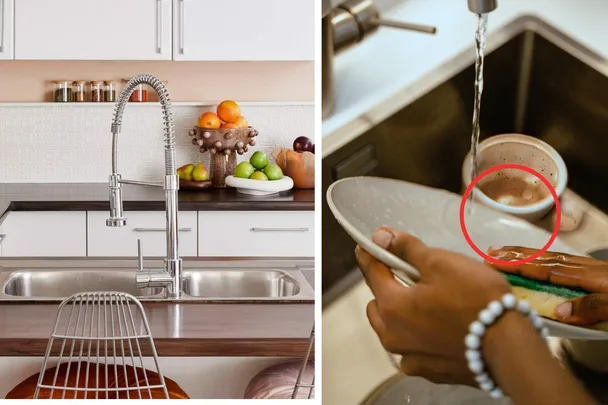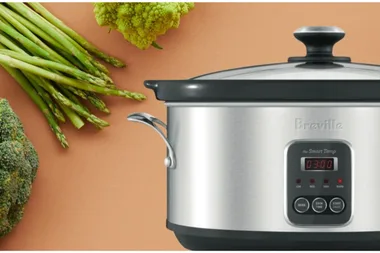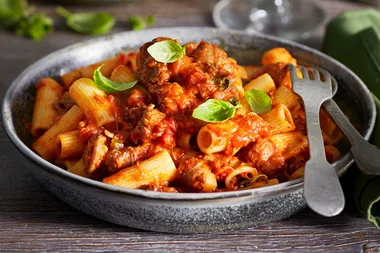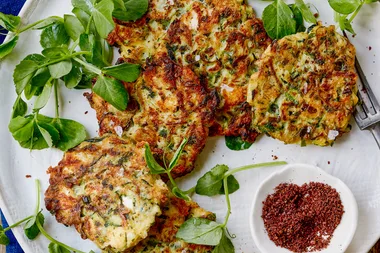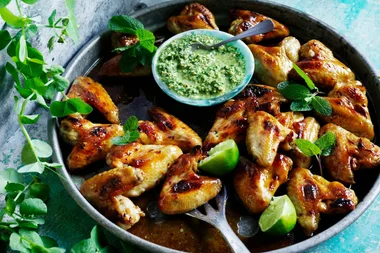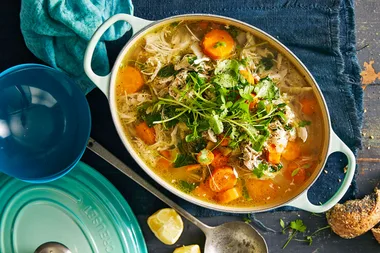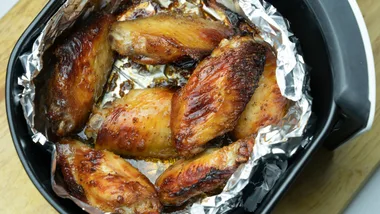We all know that hot oil is a big no-no when it comes to sinks and drains. However, there are many more limitations than you think when it comes to the kitchen sink.
I’ll admit, I have been guilty of the occasional tuna can oil pour down the sink, and a few tea leaves here and there. But, after speaking with Sydney Water, I’ve reached a whole new level of drain and pipe awareness.
While the most unusual things that have ever been found in the Sydney Water pipes include a kayak and a typewriter (what kind of evidence was someone trying to get rid of?), it’s the household food and liquid items that can cause the most damage.
Ben Hodgson-Armstrong, the Principal Manager Environment at Sydney Water, gave us the rundown on what should and shouldn’t be put down your kitchen drain.
As it turns out, most liquids are a big no, including milk!
What can you pour down a kitchen sink?
Sydney Water only has one message for Australia:
Water, soap, and detergent are the only things that should ever go down your drain.
Anything else that is poured down the drain can be harmful to your own household pipes, wastewater systems and the environment.
What should you avoid pouring down the drain?
According to Ben, the worst down-the-drain liquids are any sort of chemical. Paint, solvents and most cleaning products should never be disposed of by pouring down the sink or in the toilet.
The second biggest category is any liquid or food substance that contains oils and fats (yes, this includes milk). Hot or cold oil, alcohol, milk – basically any liquid substance that isn’t water is a danger to wastewater systems.
Other things that should never be put down the kitchen sink include:
- Egg shells
- Grease
- Flour
- Fruit stickers
- Coffee grounds and tea leaves
- Motor oil or petrol
- Some laundry detergents
Can you pour egg whites down the drain?
Unsurprisingly, the answer is a definite no. If you’re separating yolks and whites for baking, you should always be disposing of your extra egg in the bin.
Better yet, you can save your egg whites or yolks (whatever you’re separating) into a bowl for another recipe. Saved egg yolks are fantastic for lemon curd, while whites would work for omelettes, meringue or cocktails.
Why non-water substances are bad for drains
The main reason for this is safety. Not only can chemicals damage your household pipes, but they can also impact the health of wastewater system staff and the general environment.
The blockages that can occur from non-water sink pours are usually high-risk to remove by wastewater staff. And, even though our wastewater goes through a highly technical filtration system, build-up can still escape into our waterways.
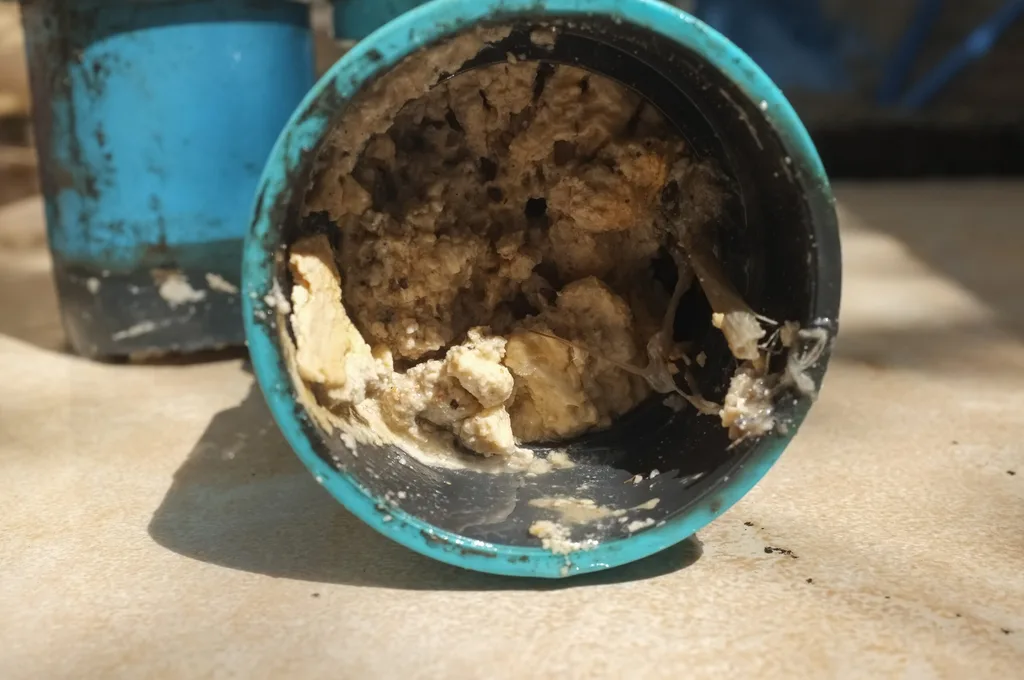
Fatbergs can form
If you’ve ever heard of the term Fatberg, you’re probably very familiar with the 30-tonne Fatberg that was found in Perth’s sewers earlier this year.
A buildup of household waste, including food, fatty liquids, hair, sanitary waste and non-flushable products, makes up a Fatberg. While these big waste blockages aren’t just from kitchen sink pours, they definitely add to the problem.
It can impact the environment
Ben explains that when there is a blockage, diluted wastewater can get into and harm the environment.
“Because it [diluted wastewater] has such a high nutrient load, it can affect animals and fish. It removes dissolved oxygen in the water, which means the fish can’t breathe, which can damage fish populations. That’s an extreme kind of event that may occur, but it does just shine a light on why we don’t want any food sources going down into wastewater.”
Damage to household pipes
Not only can it affect wastewater systems, but it can also impact your own household. Excessive pouring of hot oils and other non-water liquids can cause blockages or additional wear and tear on your pipes.
Oils and other fatty foods and liquids can sit in the bends of your pipes and harden over time. This can cause major blockages that can be very difficult to remove or flush away.
Chemicals and cleaning products can wear down the glue that connects pipes or even damage the PVC itself. This can cause leaks and give lots of extra money to your plumber!
How to dispose of liquids that aren’t water
The best way to dispose of liquids is always by putting them in the rubbish bin. Here are a couple of ways you can safely dispose of liquids you’d usually pour down the drain.
1. Hot oil: Pour your hot oil into leftover plastic that you’re planning on throwing out (chip packets, takeaway containers, etc.) and wait for the oil to cool and harden. Then, you can simply put it straight in the bin.
2. Cold oil and alcohol: Find containers and plastic bags you’re ready to dispose of, and simply pour in the liquid before placing them in the bin. Be sure to tie it tightly so no leaks occur.
3. Milk: Sydney Water recommends diluting your old or off milk with water and using it to feed the garden. It has a heap of nutrients that your plants will love!
4. Cleaning solutions and chemicals: These should always be disposed of in the safest way possible. Some councils and states do not accept chemical solutions being placed in the red bin. It’s always recommended to follow council guidelines when it comes to chemical waste.
